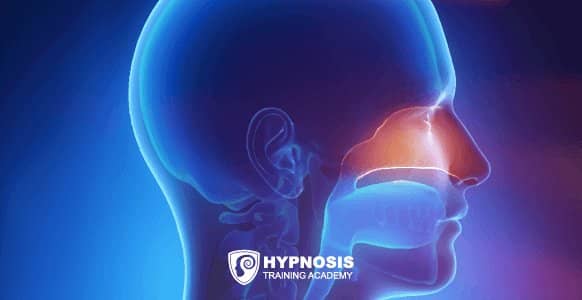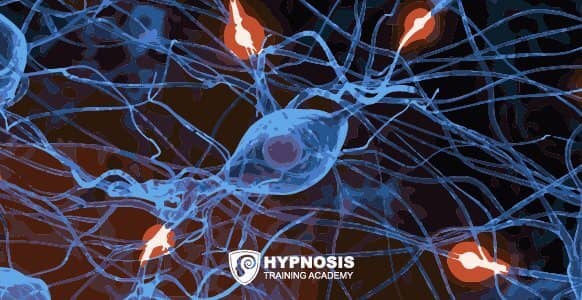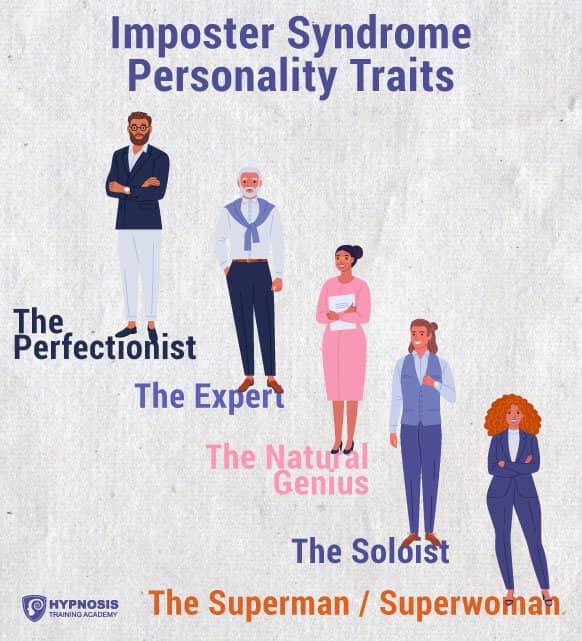As a hypnotist, there are some questions you get asked all the time, and one of them is “what can hypnosis help treat?”
People are often surprised by the responses to all of these questions, but the last question in particular never fails to impress people.
Why?
Because hypnosis can help treat everything from helping people stop smoking (smoking cessation), weight loss, sexual dysfunction, depression, anxiety, pain relief, self-esteem issues, physical healing, trauma, bad habits and phobias, in addition to many other issues.
In fact, you might be hard-pressed to discover something that hypnosis WON’T be able to treat. But why is this the case?
What makes hypnosis so special, and why can it treat so many different issues?
To understand this, let’s back up a bit and take a look at how hypnosis works in the first place.
What Is Hypnosis & How Does It Work?
In a nutshell, hypnosis is a form of focused relaxation that helps to bypass the conscious mind and get at the unconscious. And that’s where the power lies.
When you’re hypnotized, you’re in a trance. You’re experiencing an altered state of consciousness. But don’t let that phrase scare you.
It just means you’ve shifted your focus away from the conscious everyday world and focused your thoughts inward instead.
And because you’re not paying attention to the conscious world around you, your mind drifts off and you’re free to focus on a single idea.
That’s what being in a trance is all about. It happens naturally when you’re totally engrossed in a film or a good book.
Or when you’re driving your car and can’t remember the last few miles of a journey. It isn’t mind control.
There isn’t some outside force causing you to do this. It’s just you, using your mind in a different way, allowing yourself to get into a different state of awareness.
And here’s the cool part…
When you do go into a trance, and begin communicating with your unconscious mind, that’s when you’re able to re-write your story.
That’s when you’re able to challenge and change any underlying beliefs that are not serving you well. And that’s when you can replace those beliefs with better ones.
Going into a trance helps to remove resistance. When you’re fully conscious, your mind tends to analyze everything around you.
It’s on alert, constantly taking in information, busy dealing with whatever’s happening around you.
When you’re in a trance, however, your conscious mind sort of switches off. You’re able to relax and shut out the everyday world.
And that’s when you access your unconscious mind, the part of your brain that will readily accept suggestions without questioning or analyzing them.
The word hypnosis comes from the Greek word hypnos, which means sleep. However, in order to experience hypnosis, you CAN’T be asleep.
You need to be awake so that you can interact with the hypnotherapist, because hypnosis is a technique involving two-way communication.
Imagine trying to get someone to listen to what you’re saying when they’re asleep. Impossible, right? The same goes for hypnosis.
You have to be awake, and you’re usually aware of everything that’s going on around you.
You’re probably more relaxed than usual, but your trance state means you’re able to block out distractions and bypass your critical and analytical conscious mind.
You couldn’t possibly do that when you’re asleep, and it’s ONLY in a trance state that these conditions can be achieved.
That’s exactly why hypnosis is such an effective therapeutic tool. According to Stanford psychiatry professor David Spiegel, people tend to do things they wouldn’t normally do under hypnosis.
That gives the therapist the ability to “Shake up the way they react to problems and approach them from a different point of view,” according to Spiegel.
And now let’s find out exactly what kinds of things hypnosis can be used to deal with.
15 Common Issues Hypnosis Can Help Treat
1. To Stop Smoking (Smoking Cessation)
Hypnosis has been proven extremely successful when it comes to smoking cessation. It enables someone to change the way they think about smoking at a deep and profound level, helping them find the motivation to quit within themselves.
In fact, research shows that hypnotic suggestions can help increase a person’s motivation to resist smoking urges, which can be particularly effective when combined with a more traditional smoking cessation program.
2. To Manage & Control Weight
In his article published in the Huffington Post, weight loss master Steve Miller reveals 10 ways hypnosis can be used to help someone lose weight.
First up he lists how hypnosis makes it possible for the unconscious mind to take back control of a person’s eating habits. So instead of food controlling their life, control moves back into their own hands.
A hypnotherapist might use the concept of “frames” to help a subject approach losing weight from a different perspective.
By using frame control, they can lead a subject in any direction, putting the problem in a more appropriate context.
The 3 types of frames include:
- Preframe – setting the scene before an event to help your subject zoom in on the real issue
- Reframe – changing the subject’s perception of an event or circumstance
- Deframe – making the subject’s viewpoint or objection irrelevant
Frames offer a quick and easy way to help someone make significant lifestyle changes.
They do this by getting to the core of the problem (the preframe), making them aware of its ramifications (the reframe), and making it difficult for them to argue (the deframe).
And all of this serves to put things into the right context.
3. To Control Pain
Research has shown hypnosis to be an effective way to reduce acute and chronic pain.
Studies going back to 1996 show the value of hypnosis in reducing cancer pain, and it has proven equally as effective with pain related to burns, rheumatoid arthritis, and the pain and anxiety associated with surgery.
So how does it work?
Well, during hypnosis your conscious mind is tuned out. That means you’re able to relax, block out distractions, bypass that critical conscious mind and access the unconscious mind.
That’s where you begin to focus on a single thought or idea, and if your focus is strong enough, it can help to target and reduce pain.
4. To Manage Addiction
Hypnosis is a powerful tool to fight addiction because it enables you to get in touch with the unconscious mind, the place where suggestions are able to take root and grow.
Research indicates that it can be used successfully, under the right conditions, to curb withdrawal symptoms, provide an alternative, drug-free and legal escape, and to “traumatize” an addict against the use of a needle.
5. To Combat Allergies
In a two-year study, researchers discovered that self-hypnosis was effective at reducing the symptoms of hay fever.
According to Wolf Langewitz of the University Hospital Basel, Switzerland, simply “focusing one’s thoughts on allergen-free environments” – such as a beautiful, sandy beach or a snow-capped mountain – could reduce hay fever symptoms by as much as one-third.
Although the results are encouraging, further studies are needed to verify their accuracy. However, since self-hypnosis is inexpensive (once learned) and has no side-effects, Langewitz suggests that sufferers of allergies should try it.
In a different study using hypnotherapy to treat irritable bowel syndrome, patients of Dr. Peter Whorwell from Wythenshawe Hospital in Manchester, UK, who had also suffered from hay fever, reported that their noses were “less runny” following hypnotherapy.
6. To Enable Hypnobirthing
There’s no getting away from it. Giving birth is painful. Pain produces stress hormones, increased heartbeat, and pushes blood to the arms and legs and away from the uterus, causing even more pain.
And it’s obviously impossible to be in this flight-or-fight mode and to be relaxed at the same time.
That’s why many people, including celebrity moms Jessica Alba and Tiffani Thiessen, are turning to hypnobirthing as a way of coping with the pain and making it less intrusive during the process.
The idea is to replace the stress and fear with relaxation, releasing a different set of chemicals such as endorphins that relax the muscles and act as an analgesic to relieve pain.
>>Related Article: How To Be A Hypnobirthing Practitioner: Emerging Career Trends, What To Expect & Q&A With Hypnobirthing Expert
7. To Conquer Bad Habits
Hypnosis has long been used to battle and obliterate bad habits including everything from nail biting to procrastination.
Again, this is down to its ability to get at the unconscious.
If you keep hitting it with positive suggestions and keep telling yourself you don’t need to do whatever it is you’re doing (eating fast food, picking your nose, drinking too much coffee) your unconscious will eventually get the message, you’ll start to believe it, and you’ll gradually change your behavior.
And as soon as you change your behavior, the habit is broken.
8. To Overcome Sexual Dysfunction
A big part of hypnosis is its ability to help people relax on their way into a trance state. Since stress can be a contributing factor in so many health issues, including problems such as sexual dysfunction, it makes sense that hypnosis can be used to help treat those issues.
This can be achieved using focused awareness, deep breathing and visualization. Sometimes there are psychological issues causing the problem, issues perhaps relating to a previously bad experience.
Hypnosis can help by taking someone back to the experience and releasing it, helping to lift the pain, shame or anxiety that’s getting in the way of a healthy sex life.
9. To Cope With Emotional Trauma
Emotional trauma occurs as a result of a stressful event that can leave a person feeling insecure, helpless and alone.
One of the ways hypnosis can tackle this problem is through the use of regression. This involves taking the person back to the traumatic experience so that they can relive it and realize the danger is in the past.
It no longer exists and is no longer the threat that it once was.
Whatever the experience, hypnosis can help deal with the trauma and improve the person’s quality of life.
It has been shown to be effective for survivors of sexual assault and accidents, in addition to children and ethnic minorities who have experienced trauma. Hypnosis is also being integrated into therapies for the treatment of PTSD and its symptoms.
10. To Deal With Depression
Following on from point number 9, depression can be triggered by a traumatic event or experience.
But because hypnosis can help treat the trauma, it’s also a great tool for dealing with any of the after effects such as depression.
Certain traumatic events act as triggers for depression, including things like the death of a loved one, the loss of your job or of your home, divorce, and so on.
Hypnosis works by enabling you to get at the unconscious mind to deal directly with the traumatic event, removing the need for the depression, although it may take some time to remove it depending on its severity.
11. To Relieve Anxiety
Hypnosis is a powerful technique for dealing with or relieving anxiety.
That’s partly because hypnosis is entirely natural with no side-effects. You can’t get hooked on it. And unlike medication, which can simply cover up the problem, hypnosis helps you get to the root of the problem.
It changes the way you respond to stress and anxiety, helping you deal with the physical and emotional aspects of your life that can lead to anxiety and stress.
And as it states in one of our popular articles, Why Hypnotherapy For Stress Relief And Anxiety Is Highly Effective, it puts you back in control of your life by literally helping you to reprogram your brain.
IMPORTANT NOTE: In some instances, where anxiety and/or depression have become so overwhelming that they’re significantly impairing a person’s ability to function, medication can serve as a useful (and sometimes necessary) crutch when combined with therapy to get them through such difficult periods. Sometimes, hypnosis alone is not enough and a subject should be referred to a medical professional for immediate attention. For more information, check out this guide How Hypnosis Is Used For Anxiety And Depression: An Important Guide For Hypnotists PLUS 3 Scientific Studies That Explain Why it Works.[/IMPORTANT_NOTE]
12. To Overcome OCD
OCD often shows up in the form of obsessive thoughts or compulsive behaviors. These thoughts or behaviors can be genetic, or the result of damaged or malfunctioning neural pathways, or as in the majority of cases caused by emotional or developmental issues.
You can see a trend developing here. This is yet another psychological issue that hypnosis can treat effectively by once again bypassing the conscious mind and penetrating the unconscious.
Regression therapy is also useful in this instance, taking the person back to a time when the OCD began, finding the cause, and realizing that the cause or situation no longer exists.
If you are going to work with diagnosed mental illnesses, you will require proper training beyond standard hypnosis certification, and a medical doctor’s referral.
13. To Assist With Stress Management
Just as with anxiety, hypnosis has been proven useful in helping to keep stress at comfortable and manageable levels.
It can do that by focusing on the underlying emotions that are feeding the stress and that are keeping it at the forefront of the person’s mind.
This is another issue that regression therapy can be used to tackle, returning the individual to a time when the stress first became a problem.
Once they know where the stress comes from, they can begin to address it, and realize that it no longer needs to exert such a hold on them.
14. To Fight Fears & Phobias
Fears and phobias are conditioned responses that present themselves in the form of heightened anxiety in given situations.
They’re often the result of a feeling that’s associated with an unpleasant event or experience. While some fears appear to serve a purpose (fear of heights, fire, etc.) most phobias seem to be totally irrational, such as the fear of balloons.
But even these seemingly irrational phobias did serve a purpose at one time. What hypnosis does is to find the root cause of the phobia to enable the sufferer to deal with it and eliminate it from their life.
15. To Facilitate Athlete Coaching
Sportsmen and sportswomen need to be fit and healthy, not just physically but also mentally.
Hypnosis can help them prepare for a game or their next challenge using techniques such as relaxation, visualization, and focusing, all designed to improve their mental stamina.
These techniques help them stay calm and eliminate distractions from their mind, letting them concentrate completely on what lies ahead.
Big names like Michael Jordan, Mary Lou Retton and Tiger Woods have all made use of sports hypnosis to bring them unprecedented success in their fields.
16. Imposter Syndrome
Imposter syndrome is becoming a common disorder nowadays especially in the workplace and within family dynamics.
It usually occurs when you think that your success and capabilities are due to luck, and not due to your efforts, qualifications, or your own intelligence. Basically, these people are unable to take credit for their own success.
Imposter syndrome commonly occurs within the following situations and settings:
- Academic setting
- Workplace
- A new or unfamiliar setting
- A social setting where relationships are being formed
- Familial settings
Specialists and therapists tried to apply various methods to combat imposter syndrome, and most of them are Psychotherapy techniques. Some methods include Cognitive Behavioral Therapy (CBT), self-esteem building and reframing.
But recent studies point to hypnotherapy as one of the best ways to overcome imposter syndrome.
There are at least 7 potential tools available, including:
- Blitz
- Mind-Bending Language (MBL)
- Non-Awareness Set
- Dynamic Mental Imagery (DMI)
- Reintegration
- Revivification
- Regression
To learn more about how hypnosis can help manage and treat Imposter Syndrome, check out [GUIDE] Hypnosis For Imposter Syndrome: How To Manage Symptoms And Regain Self-Trust
And that’s not the end of it. It may surprise you to hear that hypnosis can also be used for other issues.
It’s extremely effective for building confidence, boosting self-esteem, increasing creativity, setting and reaching goals, and a host of other applications. Again, what can hypnosis help treat? The answer is more than the 16 issues we have laid down in this article.
There are now hundreds of studies (check some of them out in our article, The Science Behind Hypnosis: 19 Breakthrough Medical Studies Prove The Astounding Power of Hypnosis To Heal The Body & Mind) that prove hypnosis works and that show the science behind it all.
Hypnosis isn’t just a fad. It’s a valuable therapeutic tool that really works and that can be used for an ever-growing range of issues.
And although no-one can predict the future, all the evidence would suggest that this completely non-invasive and side-effect-free form of therapy will continue to provide people with the means to live a better and more rewarding life in years to come.
The post What Can Hypnosis Help Treat? 16 Common Issues Resolved By Going Into A Hypnotic Trance (PLUS Scientific Studies To Back It Up) appeared first on Hypnosis Training Academy.
Source: Hypnosis Training Academy



















Leave A Comment
You must be logged in to post a comment.